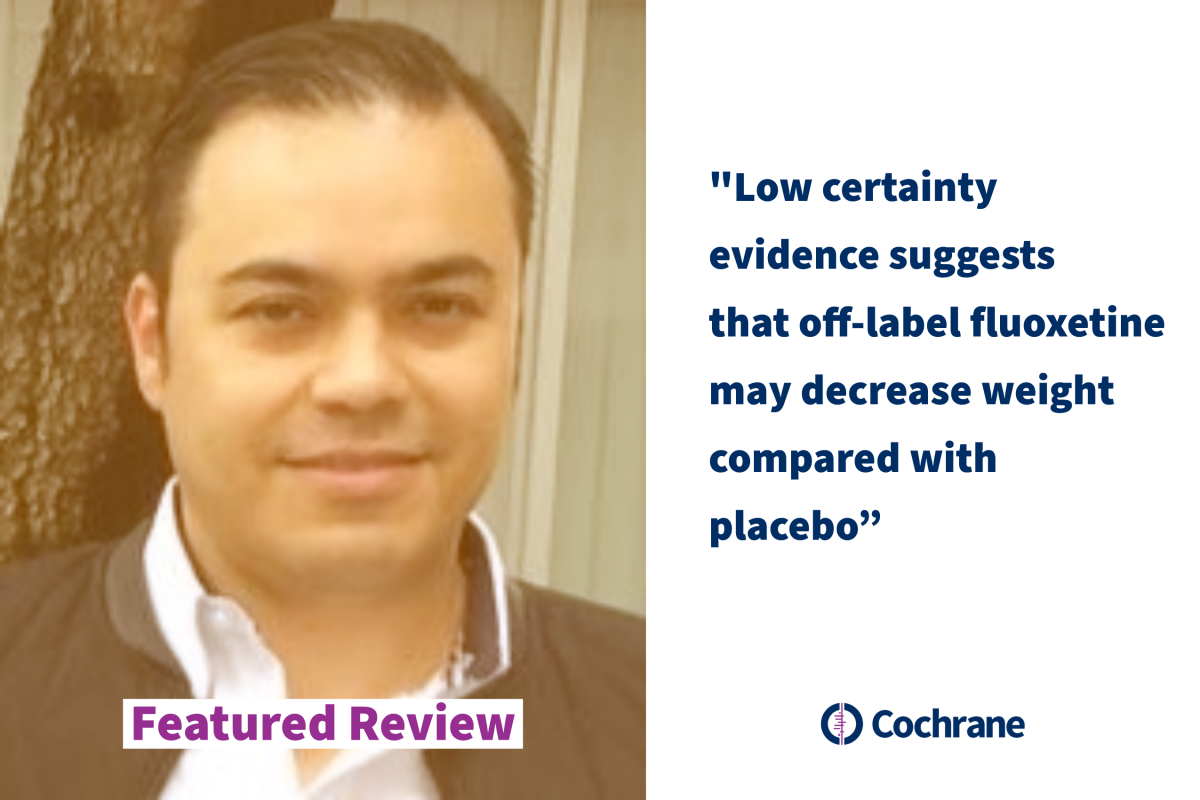
Fluoxetine is a medicine used for the treatment of depression, which reduces appetite as a side effect. Therefore, it is suspected that fluoxetine could be used as a treatment for overweight or obese people. In this group of people administration of fluoxetine means an off-label treatment which means it is not licensed for treating obesity.
The authors identified 19 randomised controlled trials (clinical studies where people are randomly put into one of two or more treatment groups) evaluating mainly women receiving different doses of fluoxetine. A total of 1280 overweight or obese participants received fluoxetine and 936 participants received mainly placebo or another anti-obesity medication. The participants in the included studies were followed up for periods varying between three weeks and one year.
For our main comparison group — fluoxetine compared with placebo — and for all fluoxetine doses there was a 2.7 kg weight loss in favour of fluoxetine. The authors are uncertain, however, if an additional study would show a benefit for fluoxetine again. A total of 399 out of 627 participants (63.6%) receiving fluoxetine compared with 352 out of 626 participants (56.2%) receiving placebo experienced a side effect. Dizziness, drowsiness, fatigue, insomnia and nausea were observed approximately twice as often after fluoxetine compared to placebo. A total of 15 out of 197 participants (7.6%) receiving fluoxetine compared with 12 out of 196 participants (6.1%) receiving placebo experienced depression.

Lead author Alejandro Gonzalez Garay said, “The overall certainty of the evidence was low or very low, mainly because of the small number of studies per outcome measurement and the small number of participants. Low certainty evidence suggests that off-label fluoxetine may decrease weight compared with placebo. However, low-certainty evidence also suggests an increase for dizziness, drowsiness, fatigue, insomnia and nausea following fluoxetine treatment and nausea following fluoxetine treatment.”
